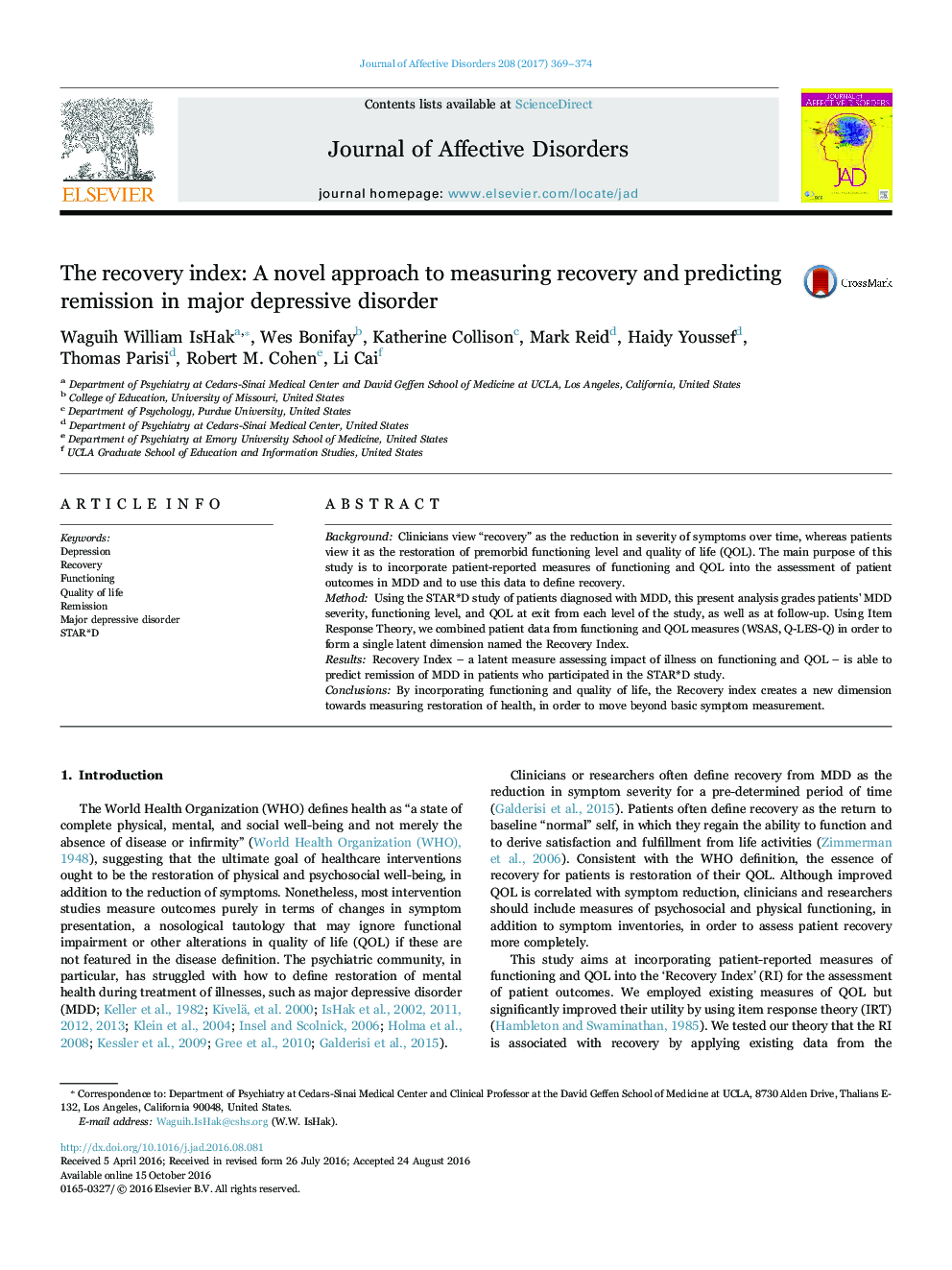| Article ID | Journal | Published Year | Pages | File Type |
|---|---|---|---|---|
| 5722100 | Journal of Affective Disorders | 2017 | 6 Pages |
â¢This study incorporates patient-reported measures of functioning and quality of life (QOL) into the 'Recovery Index' (RI) for assessing patient outcomes.â¢The study proves that the RI can predict recovery meaningfully.â¢Now clinicians may not only target remission, but also aim to improve patients' QOL & functioning.â¢RI can be used across other psychiatric and medical illness.
BackgroundClinicians view “recovery” as the reduction in severity of symptoms over time, whereas patients view it as the restoration of premorbid functioning level and quality of life (QOL). The main purpose of this study is to incorporate patient-reported measures of functioning and QOL into the assessment of patient outcomes in MDD and to use this data to define recovery.MethodUsing the STAR*D study of patients diagnosed with MDD, this present analysis grades patients' MDD severity, functioning level, and QOL at exit from each level of the study, as well as at follow-up. Using Item Response Theory, we combined patient data from functioning and QOL measures (WSAS, Q-LES-Q) in order to form a single latent dimension named the Recovery Index.ResultsRecovery Index - a latent measure assessing impact of illness on functioning and QOL - is able to predict remission of MDD in patients who participated in the STAR*D study.ConclusionsBy incorporating functioning and quality of life, the Recovery index creates a new dimension towards measuring restoration of health, in order to move beyond basic symptom measurement.
